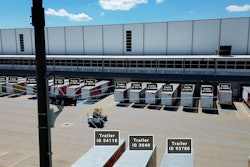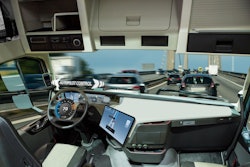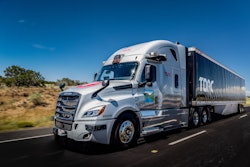Trucking news and briefs for Monday, Sept. 9, 2024:
Driverless startup adding new lane
Autonomous truck tech company Aurora Innovation plans to extend its Fort Worth to El Paso lane by opening operations to Phoenix, the company announced. It expects to begin commercial pilots for customers between Fort Worth and Phoenix in the first half of 2025 with the intent to go driverless on that route later in the year. The 1,000-mile passage takes over 15 hours to complete, making it particularly compelling for autonomy.Aurora has hauled more than 7,000 loads for pilot customers across nearly two million commercial miles to date.
Aurora said it is also launching an industry-first Partner Success Program, which puts customers’ drivers and executives in the cab of Aurora Driver-powered trucks to evaluate autonomy performance before driverless operations. To help validate the program, Aurora enlisted J.J. Keller to take a ride and provide feedback on the experience. The program is slated to begin later this year.
Texas Supreme Court to hear Werner’s high-profile nuclear verdict case
The Texas Supreme Court announced it will hear a nuclear verdict case involving Werner Enterprises (CCJ Top 250, No. 13) stemming from a fatal December 2014 crash.
In the initial trial, Werner was found mostly liable for the crash, even though Werner’s truck was struck by an out-of-control vehicle that crossed the interstate median.
The crash occurred on I-20 in Odessa, while the area was under a Winter Storm Warning. Werner’s driver, Shiraz Ali, was driving Westbound while accompanied by his supervisor, who was in the sleeper berth. In the Eastbound lanes, Trey Salinas drove a pickup truck with Jennifer Blake and her three children as passengers. Salinas hit black ice, lost control of the pickup and spun across the grassy median into Ali’s lane.
According to court documents, Ali promptly braked, but the vehicles collided, resulting in the death of one child and serious injuries to the rest of the Blakes. An investigating officer testified that the crash was “truly an accident,” adding that Ali “didn’t do anything wrong” and that there was nothing he “could have done to avoid the collision.”
The Blakes sued Ali and Werner for wrongful death and personal injuries, and a jury found them liable and awarded the Blakes more than $100 million in damages. That judgement has since been affirmed in a Texas appellate court.
The Texas Supreme Court will hear the case on Dec. 3. Werner and Ali seek to have the previous judgement reversed.
Werner’s case in part led the Texas legislature to enact a new law in 2021 that added a layer of protection for motor carriers in post-crash litigation.
The law requires a jury to find a trucking company or truck driver liable for a crash before exemplary damages can be sought in a civil case. It allows a defendant trucking company to request a two-phase trial in which the first phase would be used to determine liability for the crash itself and the amount of compensatory damages awarded. The second phase would be used to determine any negligence from the motor carrier, such as driver training or equipment problems, and the amount of exemplary damages awarded.
[Related: New Texas law deals blow to Reptile Theory trial strategy in crash litigation]











